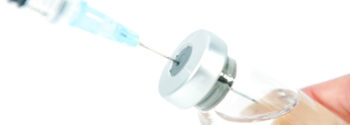Do You Have Obsessive-Compulsive Disorder and a Sexual Dysfunction?
Obsessive-Compulsive Disorder
The National Institute of Mental Health estimates that more than two percent of the U.S. population suffers from obsessive-compulsive disorder or OCD. OCD sufferers are victims of irrational and intrusive thoughts or obsessions that accumulate in their mind over time. Disturbing thoughts that revolve around cleanliness, danger or extreme and irrational worry frequently preoccupy the obsessive-impulsive personality. OCD suffers compulsively perform rituals that they believe if not performed will result in terrible consequences. Common rituals involve counting numbers, hand wringing, repeatedly turning on and off light switches, opening and closing doors and the repetition of words or phrases. The causes of OCD aren’t completely understood, but studies point to a biological component in which the brain’s chemistry has been altered or from a lack of serotonin production in the brain. Researchers believe that OCD may stem from behavior-related habits learned over time or during childhood.
Since sex carries so much emotional, moral and physical importance, it easily becomes a magnet for obsessions in people with obsessive-compulsive personality disorder. OCD is often called the “disease of doubt” and for many of its sufferers, the disease can wreck havoc on their sex life. Studies show that up to 50% of all OCD patients report some type of sexual dysfunction. OCD causes many different forms of sexual dysfunction and can even cause someone to avoid sex altogether. Many people with obsessive-compulsive disorder have an unwarranted fear of contamination. This irrational fear may lead someone to avoid sex because they are afraid of coming into contact with a diseased or unclean person or they fear ingesting or coming into contact another person’s bodily fluids. OCD is also known to cause a decrease in sex drive. Studies show that women with OCD are more sexually non-sensual, avoidant and anorgasmic.
The anxiety associated with obsessive disorder can detract from erotic stimuli and impair sexual arousal. Studies have shown that up to 37% of men with OCD have some type of erectile dysfunction or are impotent. Reports show that these problems occur most frequently in male patients between 45 and 54 years old. Women with OCD frequently report a reduction in vaginal lubrication and clitoral blood flow. Dyspareunia, a medical or psychological disorder in which women experience severe pain while having sexual intercourse, occurs more frequently in women with an obsessive-compulsive personality.
In addition to problems with arousal and desire, obsessive-compulsive personality disorder also affects orgasmic function in both males and females. Negative emotions, including anxiety or fear of failing to meet a partner’s expectations, represent one of the most common causes of premature ejaculation, or PE, in men. Sexual performance anxiety can greatly reduce a man’s ejaculation control, resulting in them reaching orgasm before their sex partner or even within seconds of penetration. After repeated short sexual encounters, the OCD sufferer may become more and more anxious before a sexual encounter. This anxiety can work to exacerbate their premature ejaculation problems and may even be the beginning phases of impotence.
Erectile dysfunction can also be caused by many of the OCD medications used to treat the disease. Reduced libido, erectile dysfunction and inability to reach orgasm are common side effects associated with OCD medications. This places the patient in a double bind, because the same medication that is used to treat their anxiety also causes sexual dysfunction.
Obsessive compulsion can also result in powerful sexual obsessions. Although many people have rational concerns about their physical attractiveness, potency, or the faithfulness of their sexual partner, OCD sufferers may obsess over these issues in an extreme way, which can lead to an inability to perform sexually. Obsessive compulsion can also lead to paralyzing preoccupation with homosexuality, unfaithfulness, deviant behaviors, pedophilia and AIDS. Someone with OCD may be so preoccupied with catching AIDS that they may not be able to sexually perform or they will avoid sex completely. Other suffers may inappropriately fear that a waning feeling for their heterosexual lover may be the result of unfulfilled homosexual desires. OCD suffers also frequently believe that their significant other is cheating on them, which can lead to a strained relationship.
Many people who suffer from obsessive-compulsive disorder avoid getting proper medical or psychological treatment because, although many have the insight to see that their obsessions are false, the obsessions still feel completely real to them. Once a sufferer decides to get treatment, there are many medications or behavioral practices available to help the patient overcome this debilitating disease. For those who suffer from sexual dysfunction caused by either OCD or OCD medications, there are a wide variety of treatments for erectile dysfunction, premature ejaculation and many female-specific sexual disorders.

